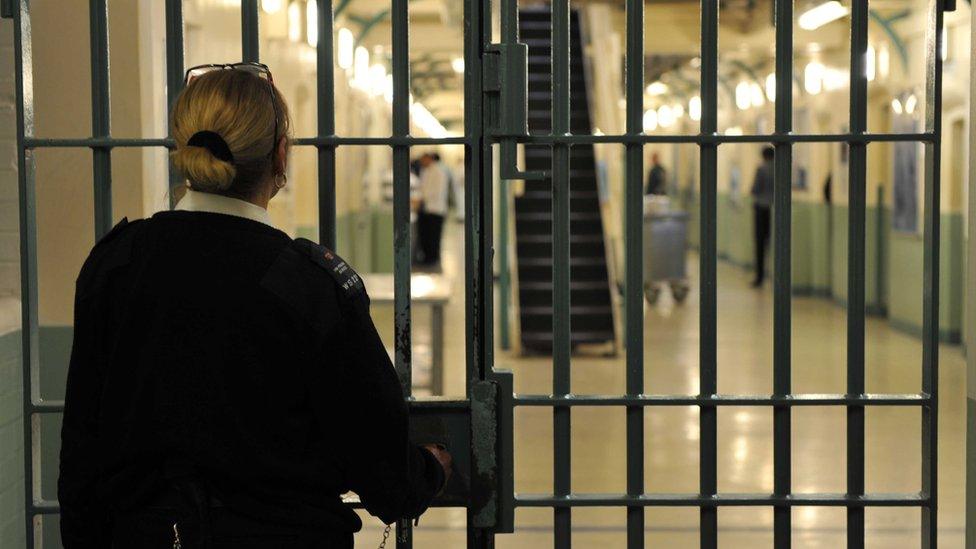Drug targets for prisons in England and Wales
- Published

Jails in England and Wales will be set targets for the first time to keep out drugs under prison reform proposals.
The plans in the government White Paper - proposals for future laws - include assessing every new inmate for drug addiction upon arrival.
Ministers say the "stringent targets" will hold prison governors to account.
The plan is closely tied to Monday's announcement of an attempt to "rebuild" drug treatment programmes in England and Wales after years of cuts.
Under the proposals, each prison will be given an individual target on the number of drug tests that must be carried out to keep track of abuse that leads to reoffending after release.
Each prison's performance in cutting drug and alcohol abuse - and its success in getting inmates into education and training - would be published in a national league table.
The government also says that it will continue to install airport-style scanners in new jails - although it is not clear whether they will be introduced to all existing prisons.
Some 74 scanners are already operational in the most secure male prisons - about two-thirds of all establishments. They have identified 10,000 attempts to smuggle items into jails since the summer of 2020.
Three new prisons are already in the pipeline, with a further three locations to be confirmed.
Ministers are proposing that the scanners could also be used to search all staff to root out potentially corrupt officers - although it is not clear whether that would require their agreement in advance.
Justice Secretary Dominic Raab said: "We are building extra prison places so that serious offenders will be incarcerated for longer.
"Our plan will improve the security of our jails to help cut off the flow of drugs, knives and mobile phones, and allow effective rehabilitation to take place."
But Steve Reed, Labour's shadow justice secretary, said drug use among prisoners had soared in the last decade.
"Conservative incompetence, cuts to the whole justice system and a lack of oversight of contracted companies has left prisons understaffed, dangerous and overcrowded universities of crime," he said.
Related topics
- Published6 December 2021
- Published5 December 2021